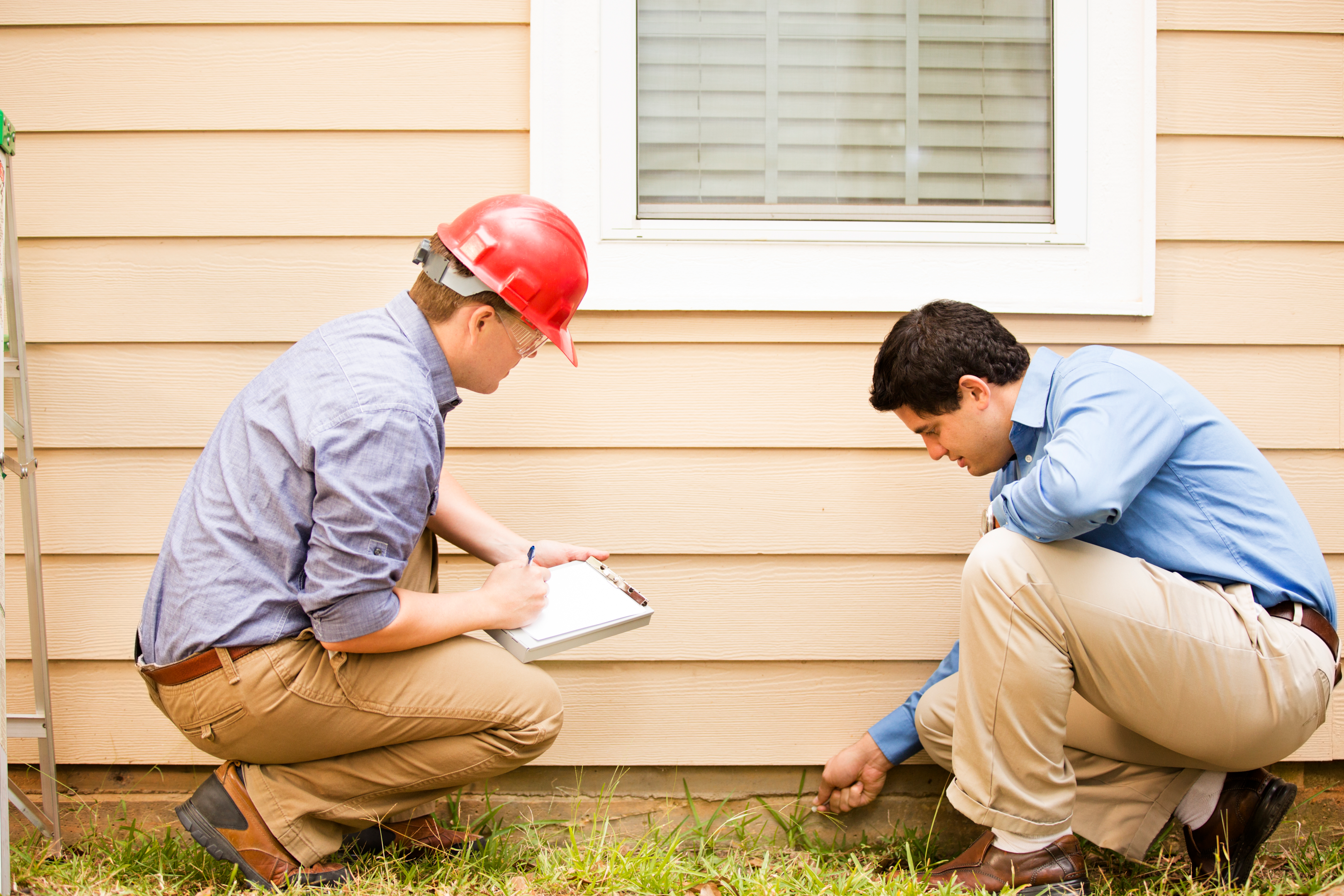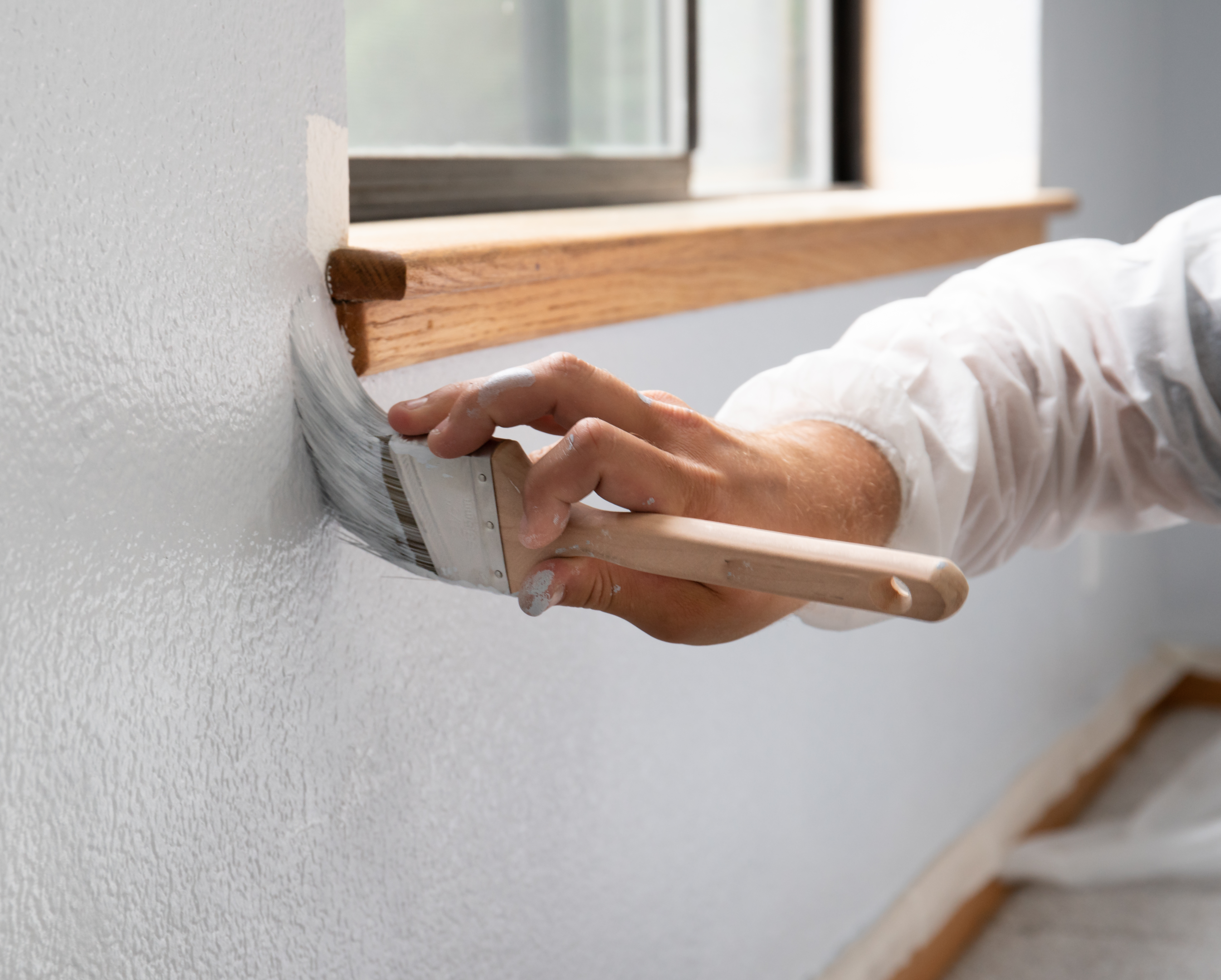Buying or selling a home can be a stressful and complicated process. One of the most important steps in this process is the home inspection. A home inspection is a comprehensive evaluation of the home’s condition, including its structural integrity, electrical, plumbing, and HVAC systems, among others. However, before a buyer schedules an inspection, sellers can choose to have a pre-inspection done. A pre-inspection is a valuable tool that can help identify any issues with the home before putting it on the market. In this article, we’ll discuss a home inspector checklist and inspection tips for sellers to help prepare for a home inspection.

Why get a pre-inspection?
“A pre-listing inspection, where the seller gets a home inspection prior to listing their home on the market, can significantly help them maximize the home sale as it provides transparency about the home’s condition to potential buyers,” recommends Josh Rogers, an experienced WIN Home Inspection Training Specialist and former WIN home inspector.
“This builds trust with buyers, helping the seller avoid prolonged negotiations and sell the home faster. Moreover, the pre-listing inspection report can help sellers identify key issues that, when addressed before listing the home, can increase the home’s value.”
A pre-inspection can benefit the seller in several ways.
- Identify Issues: A pre-inspection can identify any issues with the home before putting it on the market. Addressing these issues before a buyer’s inspection can help prevent surprises that could lower the sale price or even derail the sale altogether.
- Reduce Liability: By disclosing any issues upfront, the seller can reduce their liability and avoid potential legal issues down the road.
- Increase Buyer Confidence: Providing a pre-inspection report can increase buyer confidence and demonstrate transparency, potentially leading to a faster sale.
What do home inspectors look for?
Home inspectors typically check the following areas:
- Structural features: The inspector will check the foundation, walls, floors, and roof for any signs of damage or wear and tear.
- Electrical: The inspector will check the electrical panel, wiring, outlets, and light fixtures for any safety hazards or outdated systems.
- Plumbing: The inspector will check for leaks, water pressure, and the condition of pipes and fixtures. They will also inspect the water heater and sump pump.
- HVAC: The inspector will inspect the HVAC system, including the furnace, air conditioning, and ductwork. They will also check for proper ventilation.
- Appliances: The inspector will test all appliances, including the stove, refrigerator, dishwasher, and garbage disposal.

Home inspections can vary based on location, as different regions may have unique building codes, climate conditions, and potential hazards. For example, in coastal areas like Virginia Beach, inspectors may pay closer attention to issues like flooding or damage from hurricanes or saltwater corrosion on their home inspection report. In Dallas, TX, inspectors may focus more on HVAC systems and electrical issues due to the hot climate. In Rochester, NY, inspectors may look for signs of damage from heavy snow and ice or issues with heating systems.
Ultimately, the specific items inspected may vary depending on the region and the individual inspector’s expertise and approach. An inspector’s job is to do their best to examine your home for any signs of defect.

Preparing your home for inspection: A DIY home inspector checklist for sellers
“One important tip for maximizing your home sale is to have the house prepared for inspection ahead of time by addressing any issues before listing,” suggests USA Home Inspections. “This includes fixing any leaks, ensuring proper ventilation, making sure windows and doors open properly, and ensuring that all appliances and systems are functioning properly. Additionally, it’s important to understand the USA home inspection process and to be prepared to negotiate any necessary repairs with potential buyers.”
Preparing for a home inspection can seem daunting, but with the right checklist and preparation, you can ensure that your home is in top condition for the inspector. Here are some essential items to include in your home inspection checklist for sellers:
1. Clean and declutter all areas
- Clean and declutter all rooms, including closets and storage areas.
- Clean your furnace filter, stove, and oven.
- Clean any mess in all rooms.
- “Making your home more aesthetically pleasing can help create a positive impression during the inspection,” suggests Supreme Inspections. “This includes cleaning and decluttering your home, painting the walls, and adding some decorative touches.”
2. Clear the inspector’s access points
- Ensure that all access points are easily accessible, including the attic, crawl space, electrical panel, and basement.
- Clear at least six inches of space around the perimeter of your home’s exterior, including cutting back shrubs and other overgrowth from vegetation.
- “One of the critical tasks to prepare for a home inspection is to make sure your roof is in good condition,”
recommends Supreme Inspections. “Check for any missing or damaged shingles, and make any necessary repairs. You should also ensure that your gutters and downspouts are clean for proper drainage.”
3. Test the functionality of all the things your inspector will check
- Test locks and seals on all entry points of the house, like windows and doors.
- Ensure all water sources are functional, for example, faucets and toilets.
- Make sure ceiling and bathroom fans operate.
- Make sure your light switches work.
- Test the garage doors by opening and closing them manually and with the remote, then check the reverse safety setting.
- Inspect the weather stripping on doors to confirm it’s intact and functioning.
- Check that downspouts are properly diverting water away from the home.
- Confirm that heating ducts are connected in the crawl space.
- Check that fan ducts are venting correctly out of the attic.
4. Check all utilities
- Check for any leaks in plumbing, including sinks and your water heater.
- Ensure that your water heater is performing adequately, with hot water temperatures between 118-125 degrees Fahrenheit.
- Make sure all visible electrical wiring is in good condition and that the fuse box is also in working order.
- Check that air filters in your AC are clean, and visible ductwork is in good condition.
- “Another crucial step is to service your HVAC system. This includes changing air filters, cleaning the ducts, and having a professional inspect and service the system,” suggests Supreme Inspections.
5. Make safety and security arrangements
- Test your smoke detectors and carbon monoxide detectors.
- Have a fire extinguisher available and cap gas lines or chimney entry points.
- Exterminate bugs or rodents.
- “Termites can also be a concern, so it’s crucial to check for any signs of infestation,” shares Supreme Inspections. “Look for mud tubes, damaged wood, and piles of sawdust. If you suspect that you have termites, it’s essential to have a professional inspection and treatment.”
6. Make Repairs if needed
- Replace light bulbs.
- Re-caulk around bathtubs and sinks.
- Replace cracked or broken tile.
- Repair any water damage in bathrooms and remove any drain clogs.
- Update any dingy grout and replace torn screens and cracked windows.
- Replace any missing roofing and damaged insulation in the attic and crawl space.
- Sweep debris off the roof (or pressure wash if needed) and trim trees that are near or hanging over the roof line.
- Clean out gutters and clear debris from around the A/C compressor, downspout drainage, and foundation vents.
7. Prepare certain items for your inspector
- Plan to leave your home an hour early and take pets with you.
- Leave remotes for garage doors, ceiling fans, lights, etc., and keys for gates, outbuildings, and electrical boxes.
- Make sure all utilities are on.
- Take laundry out of the washer and dryer and remove dishes from the sink and dishwasher.
- Leave a sketch identifying the location of a well or septic tank and paperwork for any maintenance, repairs, or insurance claims.

Always disclose known issues
It’s essential to be transparent about any known issues that may arise during your pre-inspection. If you come across a problem that can’t be easily fixed, it’s crucial to notify a potential buyer. Failing to disclose known flaws can leave buyers feeling like you’re being dishonest or trying to hide something. While it’s always preferable to correct problems before an inspection, it’s not always possible or financially feasible.
In such cases, offering a credit at closing can be a viable alternative. This allows buyers to make the necessary updates themselves without placing an additional burden on the seller. By being upfront about known issues, you can help build trust with potential buyers and avoid any conflicts down the line.
Pre-inspection alternative
If you’re selling your home, a pre-inspection is a great way to identify and remedy any issues before the buyer’s inspector arrives, or they may waive one altogether since you’ve already had one done. However, there are other options that sellers can consider besides a pre-inspection. One alternative is to conduct your own inspection using a checklist similar to the one provided. This will allow you to identify and address any issues beforehand, giving you more control over the process.
Ultimately, it’s up to the seller to decide which option is best for their situation. However, by being proactive and addressing any issues ahead of time, you can increase your chances of a successful sale and potentially save yourself from unexpected repairs or negotiations down the line.
What to do after your inspection
Have you checked off everything on your seller home inspection checklist? After assessing your own home, you may find some issues that need to be addressed before listing. It’s crucial to focus on areas related to code violations, safety issues, or structural problems. Addressing these issues before a professional inspection can help prevent any potential sale delays or issues.
However, if you come across significant issues such as foundation problems or wood rot from termites, selling your home “as-is” may be a better option. By working with an off-market buyer, you can receive a competitive offer that takes into account renovation costs, allowing you to sell your home without making extensive repairs. This can be a practical solution for sellers who want to avoid the time and expense of fixing significant issues before listing.
Frequently asked questions about home inspections answered by a professional
Josh Rogers, WIN Home Inspection Training Specialist, has provided answers to the ten frequently asked questions about home inspections below:
1. What are the most common issues you come across during home inspections that sellers should be aware of?
“Water leaks, as well as health and safety concerns including electrical and deferred maintenance issues, are among the most commonly found issues in homes because these issues are hidden in areas of the home that homeowners don’t often see, like the attic and crawlspace. Also, a lack of maintenance on important systems, such as your HVAC unit, can pose serious issues and significant costs in repairs. Sellers can maximize their home value if they keep these systems maintained regularly and disclose any maintenance or repairs to interested buyers.”
2. What are some tips you would give to sellers to prepare their homes for a home inspection?
“Have your HVAC units evaluated and serviced, gather any permits or warranty information for various aspects of the home including the appliances, roof, and windows, if applicable. Home sellers can help ensure that the home inspection runs smoothly and seamlessly by making the electrical panel, water heater, crawlspace, attic, and basement accessible and securing any pets in the home.”
3. How much does a home inspection typically cost, and what factors can affect the price?
“The average home inspection costs $400-$450, but that price can vary depending on the age, location, and type of foundation of the home.”
4. How long does a home inspection usually take, and what does the process involve?
“A typical home inspection can take anywhere from two to four hours, depending on the size and condition of the home. Other factors to take into consideration include if any additional buildings on the property, such as a detached garage, guest house, or shed, need to be inspected and if critical areas of the home, like the water heater, electrical panel, attic, and crawlspace, are easily accessible.”
5. What are some common misconceptions sellers have about home inspections?
“It’s important for sellers to know that even well-maintained homes can have issues. While we hope that’s not the case, the health and safety of our clients is our top priority, so we will always put that first. Getting a Pre-Listing Inspection is the best way to be made aware of any issues that could come up while under contract, and getting ahead of those issues now can help the seller undergo a smooth and seamless home sale.”
7. How important is it for sellers to disclose any known issues with the home before the inspection?
“It’s very important for sellers to disclose any known issues with the home to the buyer before the home inspection. If any major, or minor, issues arise as a result of the home inspection, it could make the buyer nervous and potentially not follow through with the home purchase. Making issues known upfront builds trust with buyers and helps to streamline the transaction.”
8. Are there any specific upgrades or renovations that sellers can make to their homes to increase their value and appeal to potential buyers?
“What’s most attractive to buyers when buying a home is not spending additional money on making updates or repairs themselves. Buyers are typically willing to pay more for a home if it is turnkey. Painting and updating light fixtures are simple and cost-effective ways to make the home more visually appealing to buyers. Sellers should also consider conducting maintenance or replacing systems or appliances to provide peace of mind to buyers and help reduce their costs after they purchase the home.”
9. What are some red flags that may come up during a home inspection that could potentially derail a sale?
“Having expensive home items, such as the roof, HVAC unit, and major appliances, being in disrepair can be detrimental to a home deal because these items are going to be a costly repair for the buyer to address after they purchase the home, and many don’t want to take on that burden.”
10. Are there any specific certifications or qualifications that sellers should look for when choosing a home inspector?
“Look for a licensed (if applicable) home inspector who goes above and beyond for their clients. This includes but is certainly not limited to being certified through nationally trusted home inspector organizations like InterNACHI and ASHI, offering value-added services to clients like Infrared Scanning and Sewer Scope Inspections, and providing exceptional customer service. Make sure they are insured and always read reviews when interested in using a particular home inspector.”
















 United States
United States Canada
Canada